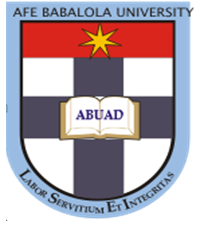Afe Babalola University (ABUAD) is a non-profit private university located in Ado-Ekiti, Ekiti State. It was founded by the lawyer and philanthropist, Afe Babalola, in 2009. Afe Babalola University offers academic programmes in six Colleges: Sciences, Law, Engineering, Social and Management Sciences, Medicine and Health Sciences, and Postgraduate Studies.
Afe Babalola University (ABUAD) was established in 2009 by Aare Afe Babalola (b. 1929), a prominent lawyer and fish farming entrepreneur from Ekiti State, Nigeria.
It graduated its first set of students in 2013. A total of 101 students graduated, 18 students with first class honors.
Afe Babalola University, Ado-Ekiti (ABUAD), a Federal Government-licensed, Non-Profit Private University is a model which is unique in many ways.
It is located on 130 hectares of land at an altitude of over 1500 feet above sea level.
The university has one main campus which is located in Ado-Ekiti, Ekiti State, Nigeria. The campus is situated in the hilly part of the town directly opposite the Federal Polytechnic Ado-Ekiti. The campuses houses 5 undergraduate colleges, a post graduate school,conference halls, a teaching hospital for medical students which is currently under construction, student and staff accommodation, sporting facility and other auxiliary services such as cafeteria for staff and students, a laundry, a bakery and a water processing plant. The Afe Babalola University holds a reputation for being one of the few Nigerian universities to begin academic works in the campus permanent site. However due to the requirement by the National University Commission that the school must possess a functioning teaching hospital, a memorandum of understanding with the Nigerian federal government to make use of the Federal Medical Center (FMC) Ido-Ekiti, Ekiti State as its teaching hospital for a period of ten years beginning from October 2014.
The admission requirement for the school varies between the different colleges. However as with all Nigerian universities, for undergraduate programs the candidate is required to have at least 5 credits in subjects such as mathematics, English language and any other three subjects that are relevant to the course of study. The student is required to have passed the Joint Admission and Matriculation Board JAMB Unified Tertiary Matriculation Examination (UTME), after which the candidate is expected to take an oral interview with an academic staff of the prospective college before admission can be given. The university also offers direct entry admission to students who wish to transfer from another university or have undergone either an Advanced Level program or a degree foundation program. The level at which they are admitted into is decided by the college and varies among them.
The university operates a collegiate system and has five major colleges. They are the College of Law, College of Sciences, College of Medicine and Health Sciences, College of Engineering and College of Social and Management Sciences. Some of the colleges offer post graduate programme in some departments.
The college of law is fully accredited by the National University Commission (NUC) of Nigeria, the college consist of fully furnished class rooms, a common room, a library containing law journals and articles and a moot court for students to have court practice session. There are a number of student chambers in the college backed by staff mentor who battle against each other in moot court session. Associate Prof. Elisabeta Smaranda Olarinde, (FCAI) is the pioneer provost of the college of law and is still the current provost of the college; she is also the deputy vice chancellor of the university. The college of law which is regarded as one of the best law colleges in Nigeria offers both undergraduate and post-graduate degree (masters level) in law
The college of engineering was accredited by both the NUC and COREN during their one week visit to the college. The main engineering building which houses several well equipped laboratories, a central engineering library, lecturer rooms, an auditorium, a central engineering workshop and a certified Festo training center. The engineering building is name after the former Nigerian president Dr. Goodluck Jonathan and was commissioned by him on the 20th of October 2013 during the university’s first convocation ceremony. Prof. Israel Esan Owolabi served as the pioneer provost of the college of engineering; he stepped down from the post in 2015 and he is currently engaged in teaching activities in the electrical/electronics engineering programme. The current provost of the college is Prof. Sunday Oyegoke form the civil engineering department. Other notable member of staff in the college includes:
Prof. T. K. Olaniyi the deputy provost of the college of engineering
Prof. A. A. Aderoba the head of the mechanical and mechatronic engineering department and also the director of the university’s directorate of technological development
The college of engineering houses 4 departments and offers 7 programmes both at undergraduate and post-graduate level. The departments are:
Department of electrical/electronics engineering and computer engineering
Department of civil engineering
Department of mechanical and mechatronic engineering
Department of chemical and petroleum engineering.
For more information on ABUAD visit www.abuad.edu.ng

